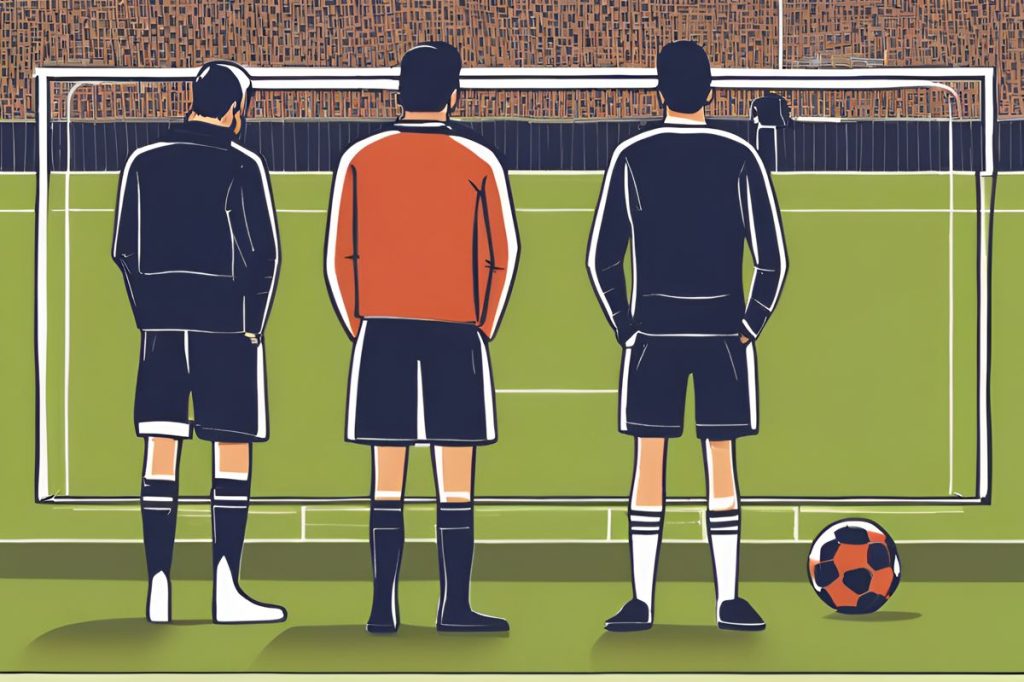Foreign footballers in Cyprus, struggling with wages below the legal minimum and harsh living conditions, gathered with Deputy Migration Minister Nicholas Ioannides to discuss their plight. The Pancyprian Footballers Association proposed a minimum salary and year-round compensation to ensure these athletes can support their families and live comfortably amid ongoing challenges.
What are the main issues faced by foreign footballers in Cyprus?
Foreign footballers in Cyprus struggle with wages below the minimum legal salary, restrictions on secondary employment, and inconsistent income due to off-season contract gaps. They often face poor living conditions and contractual issues, with clubs not meeting financial requirements for work permits. Proposed solutions include a minimum monthly salary and year-round compensation.
Wage Disparity and Living Conditions
The Pancyprian Footballers Association (Pasp) has recently put the spotlight on the financial struggles faced by foreign footballers in Cyprus. In a pivotal meeting with the Deputy Migration Minister Nicholas Ioannides, the issues surrounding the employment and wages of these players were discussed. These athletes, hailing from various third countries, are caught in a bind with salaries that do not meet the legally mandated minimum wage in Cyprus. This economic challenge significantly affects their ability to manage basic living expenses.
Furthermore, the existing work permit regulations in Cyprus contribute to the difficulties faced by foreign footballers. These regulations restrict them from seeking secondary employment, tightening their financial constraints, especially when they have families to support. The predicament is compounded when players sign contracts that span multiple seasons, only to find that these contracts fail to guarantee any income during the off-season summer months, leaving them in a financially precarious position.
Contractual and Regulatory Issues
The issue is not just limited to the players’ present financial woes but also pertains to the systemic reluctance among some football clubs, particularly those in the lower divisions. These clubs often avoid fulfilling the minimum financial requirements set by the authorities for the issuance of work permits. This deliberate omission results in foreign players being trapped in a cycle of inadequate compensation and employment insecurity.
To address this, Pasp has proposed the establishment of a minimum monthly salary for foreign footballers that reflects the cost of living and ensures that they can live comfortably in Cyprus. The association strongly advocates for the salaries to be reflective of the needs of players who relocate to Cyprus with their families. In line with this, Pasp insists that clubs should be barred from employing players for less than the minimum allowable wage.
Proposed Solutions and Ongoing Dialogue
Pasp has not only highlighted these issues but has also put forth solutions intended to safeguard the welfare of foreign players. It suggests that clubs employing foreign players for more than one season should be obligated to provide compensation throughout the entire duration of their contracts, not just during the active league months.
The discussions have yielded a positive response from the Deputy Migration Minister, Nicholas Ioannides, who showed a profound understanding of the challenges these footballers face. The meeting concluded with an agreement to maintain an ongoing dialogue to find viable solutions to these pressing issues, indicating a step towards potential policy changes that could improve the situation for foreign footballers in Cyprus.
“`markdown
What are the main issues faced by foreign footballers in Cyprus?
Foreign footballers in Cyprus face several significant challenges, including receiving wages below the minimum legal salary, restrictions on secondary employment, and inconsistent income due to contract gaps during the off-season. Additionally, many players endure poor living conditions and contractual disputes, as clubs often fail to meet the financial requirements necessary for work permits. Proposed solutions include establishing a minimum monthly salary and ensuring year-round compensation to support these athletes and their families.
How do work permit regulations impact foreign footballers in Cyprus?
Work permit regulations in Cyprus significantly impact foreign footballers by preventing them from seeking secondary employment. This restriction exacerbates their financial difficulties, especially for those with families to support. Furthermore, some clubs, particularly in lower divisions, do not fulfill the minimum financial requirements needed for work permit issuance, trapping players in a cycle of inadequate compensation and employment insecurity.
What solutions have been proposed to improve the situation for foreign footballers?
The Pancyprian Footballers Association (Pasp) has proposed several solutions aimed at improving the welfare of foreign footballers. These include establishing a minimum monthly salary that reflects the cost of living in Cyprus and ensuring that clubs provide year-round compensation for players contracted for multiple seasons. Pasp also insists that clubs should be prohibited from hiring players for less than the legally mandated minimum wage, ensuring fair treatment and financial stability for these athletes.
What was the outcome of the meeting between foreign footballers and the Deputy Migration Minister?
The meeting between foreign footballers and Deputy Migration Minister Nicholas Ioannides was a positive step towards addressing their issues. The minister demonstrated a clear understanding of the challenges faced by these athletes. They agreed to maintain an ongoing dialogue to explore viable solutions, signaling potential policy changes that could improve the situation for foreign footballers in Cyprus. This collaboration aims to create a more supportive environment for athletes who relocate to Cyprus with the hope of building a better life for themselves and their families.
“`

